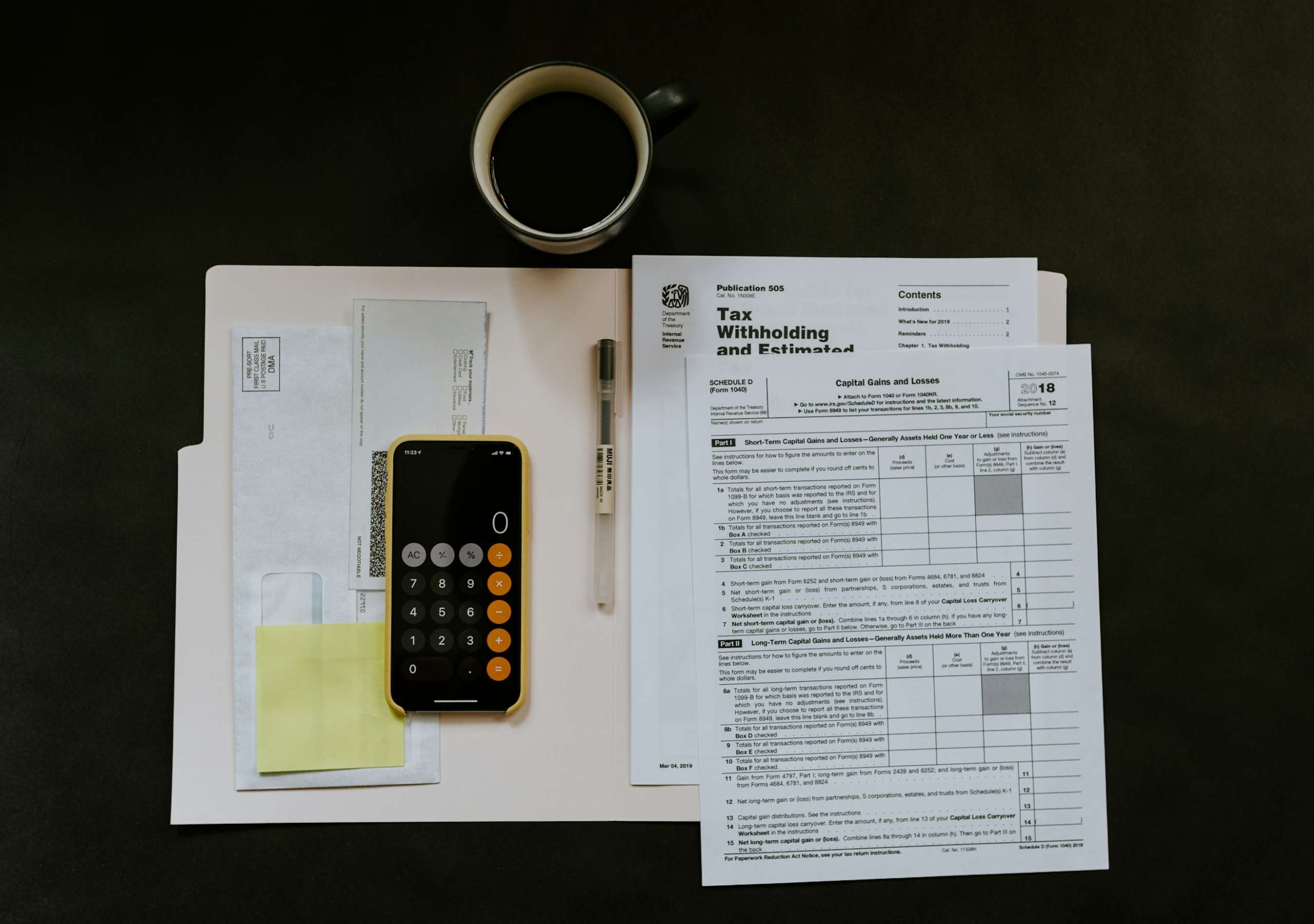1. Introduction
A company is unable to act on its own and requires directors to act as its proverbial “arms and legs” in good faith and the best interest of the company in accordance to Section 213 of the Companies Act 2016 (CA 2016). As such company directors are responsible for the company’s day-to-day operation and these include the payment of taxes and filing of accurate tax returns.
Take note that the specific duty under Section 213 is in relation to acting in good faith in the best interest of the company and not in relation to the payment of taxes as there is no specific duty under the CA 2016 to ensure the company’s taxes are paid. Therefore, if a director fails to pay the taxes of a company, can they be held personally liable?

2. Can directors be held personally liable when a company fails to pay its taxes?
Yes, pursuant to Section 75A of the Income Tax Act 1967 (“ITA 1967”), directors can be jointly and severally liable for a company’s failure to pay taxes, specifically its corporate taxes and monthly tax deductions. However, the person must have served as a director during the relevant period, which is the period where tax was owed.
Who is considered a director?
For the purposes of payment of taxes, directors are defined under Section 75A(2) of the ITA 1967 as any person who:
- occupies the position of director and is concerned with the management of the company; [Section 75A(2)(a)] and
- is either on his own or with one or more associates (see below), the owner of, or able to directly or indirectly control more than 20 percent of the ordinary share capital of the company [Section 75A(2)(b)].
Additionally for the purposes of Section 75A(2)(b) above, the meaning of ‘Associates’ is provided under Section 139(7) as having include husband or wife, parents or remote forebear, children or remoter issue, siblings, partners, and trustees of a settlement. This means that ownership cannot be hidden by splitting it among Associates.
In other words, directors holding more than 20% stake in a company, whether directly or indirectly with his or her associates (ex: immediate family members), may be liable when the company has failed to pay its taxes. However, the tax liability of a company will only be the personal liability of directors that hold at least a 20% stake, and this rule will not apply to those who do not meet that requisite threshold.
It is confirmed in The Director’s Liability Public Ruling No.2/2019 published by Inland Revenue Board of Malaysia (IRBM) that any person occupying the position of a director (and one who is holding not less than 20% of shares in the company) during the period in which the tax or debt is due shall be jointly and severally liable to pay the tax arrears of the company. The words ‘jointly and severally’ here means that the action can be taken jointly on the company and its director, or separately on the directors of a company who are liable for the tax or debt payable of the company.
3. What are the possible consequences directors will face if a company’s taxes are not paid?
As mentioned above, company directors can be personally liable for the company’s outstanding taxes (provided the requisite 20 percent shareholding threshold is met), and this section seeks to discuss the possible consequences the directors will face if company’s taxes are not paid.
The same Public Ruling mentioned above also provides that the Government can take the following tax recovery actions against directors of a company to recover a company’s taxes or debts that are due and payable:
- The Director General of Inland Revenue has the power provided under Section 104 of the ITA 1967 to impose a stoppage order to prevent a director of a company from leaving Malaysia.
- Stoppage order was defined in Paragraph 3.4 of the above-named Public Ruling as “preventing a person from leaving Malaysia if he fails to pay all the taxes, sums and debts so payable”.
- NB: Stoppage order is not only limited to a company director that has yet to pay the company’s tax and debts, but it may also be imposed on – “an individual who will be leaving Malaysia without paying all his tax, sums and debts so payable.”
- Once the amount of tax or debts due on the certificate to invoke stoppage order has been settled in full; and documentary evidence of the payment has been submitted to the IRBM branch office; only then can the director/ individual be able to leave the country after issuance of the revocation letter.
- If a taxpayer who leaves Malaysia voluntarily or attempts to leave Malaysia without making payment of all tax, sums, and debts payable where if convicted, the aforesaid taxpayer will be liable to:
- A fine not less than two hundred ringgit (RM 200) and not more than twenty thousand ringgit (RM20,000); or
- imprisonment for a period not exceeding six (6) months; or
- both.
- Stoppage order was defined in Paragraph 3.4 of the above-named Public Ruling as “preventing a person from leaving Malaysia if he fails to pay all the taxes, sums and debts so payable”.
- A police officer or an immigration officer may arrest, without warrant, any person whom he reasonably suspects of committing or is about to commit an offence by not complying with a certificate issued under section 104 of the ITA.

A Civil Suit can also be initiated by the Government of Malaysia against the company and the directors of the company holding not less than 20% of shares in the company (both will be named as Defendants) for taxes due and payable under Section 106(1) of the ITA 1967. Furthermore, the High Court is also bound by Sections 103 and 106(3) to enter a summary judgment against a taxpayer on a civil suit commenced by the Government for outstanding tax assessments. When an application for summary judgment is made by the Government in respect to tax claims, any defence / triable issues / plea that the amount of tax claimed is “excessive, incorrectly assessed, under appeal or incorrectly increased” will not be entertained by the court as illustrated in the case of Mohd Najib Hj Abd Razak V. Government Of Malaysia & Another Appeal [2024] 1 MLRA 69.
Datuk Abu Tariq Jamaluddin – (the then legal department director and current CEO of IRBM) mentioned in an interview with The Malaysian Reserve that if the company does not pay its due taxes, the IRBM can “get judgement against the director and can initiate bankruptcy proceedings.” This was seen in the recent bankruptcy proceeds initiated by the IRBM in 2024 to claim RM1.69 billion and RM37.6 million respectively in unpaid taxes from the former prime minister of Malaysia Datuk Seri Najib Razak and his son Datuk Nazifuddin; after two separate High Courts had allowed the IRBM applications to enter summary judgements.
In the same interview, Datuk Abu Tariq Jamaluddin also mentioned that “Company directors may also be well advised to pay attention to another crucial detail — they may be held liable for unpaid earlier taxes, even though they were not directors of the company at that point of time.” In other words, directors liability for unpaid corporate taxes can and will apply retrospectively. However, the courts seemed to think otherwise……
Government of Malaysia v Mahawira Sdn Bhd & Anor [2021]
In this case, it was held that Section 75A does not apply retrospectively and that it would be harsh and unreasonable to hold a director liable for the company’s tax for the years of assessment preceding the person’s appointment as a director. In other words, if you had become the director and acquired the requisite minimum shareholding in the company in 2024, you would not be made liable for any outstanding taxes of the company that precedes 2024.
The same case also emphasized the need for proper service of the Notice of Assessment on the director of the company by the IRBM (as required under Section 96(1) of the ITA 1967 and that service of the Notice of Assessment solely on the company is not sufficient. Therefore, you could only be liable of the tax once service of the Notice of Assessment has taken place.
3. What if I would like to dispute or appeal against a tax assessment?
If you are unsatisfied with the assessment of the amount of the taxes, Section 99 of ITA 1967 provides for your right to appeal against that assessment to the Special Commissioners of Income Tax (SCIT) (subjected to exceptions and conditions) and to do so, you would need to:
- Provide a written notice of appeal to the Director General within thirty (30) days after the service of the notice of assessment on you;
- Submit 4 copies of signed Form Q (1 original and 3 photocopies) on each year of assessment together with any documents/ attachments setting out the grounds of the Appeal.
You can also make an application for relief under Section 131 of the ITA 1967, but this only applies in respect of error or mistake in the Income Tax Return Form (ITRF) and to do so you would need to make an application either through a letter or through the following prescribed forms – detailing the reasons for the application.
- CP15C – Form for Application for Relief to the DGIR under Paragraph 97A(5)(a) / Subsection 131(1) of the ITA
- CP15F – Form for Application for Relief to the DGIR under Paragraph 97A(5)(b) / Subsection 131A(1) of the ITA

4. Conclusion
Whilst company directors are not obligated under the Companies Act 2016 or Income Tax Act 1967 to ensure the payment of corporate taxes (note: corporate taxes and not income taxes), however directors can be held personally liable under Section 75A of the Income Tax Act 1967 if they hold at least 20% of shares, either directly or through associates during the period which the taxes are owed. This liability extends to unpaid corporate taxes and monthly tax deductions during their period of directorship, to which we have observed that the Government of Malaysia can take various tax recovery actions such as a stoppage order or civil suit to recover any and every unpaid taxes owing to them. Directors are advised to ensure proper tax compliance and to be mindful of their potential personal liability so as to avoid severe legal and financial consequences.

Legal Disclaimer:
Information and content contained in the article are for general information purposes only and are not intended as professional legal advice nor should you rely on any information, statements or representations made within this article or within the Ying & Partners Website as legal advice. If you have any specific queries or require any legal advice, please contact us or fill in the contact query form and we will get back to you at the earliest convenience
